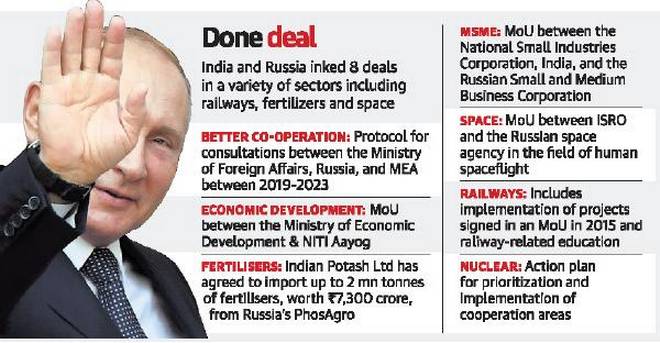900 319 0030
enquiry@shankarias.in
Why in news?
India-Russia annual summit was recently held in India between Indian Prime Minister and Russian President.
What are the key outcomes?

What is the significance of the summit?
What is the challenge ahead?
What lies before India?
Source: The Hindu